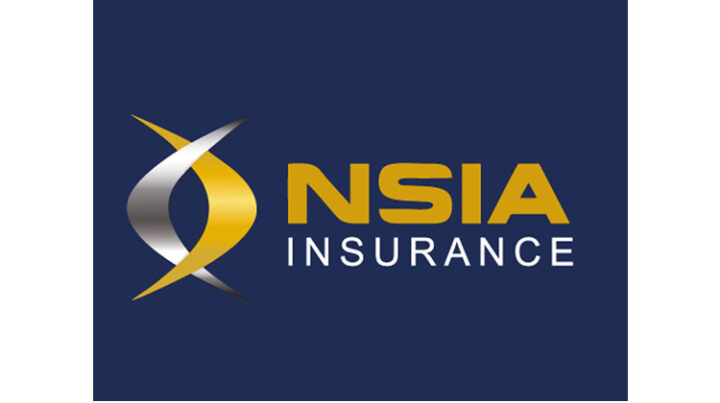In a noteworthy demonstration of cross-sector commitment to financial transparency, NSIA Insurance, the insurance arm of Nigeria’s sovereign wealth structure, has stepped forward as the official sponsor of a high-level workshop on corporate reporting organised by the Nigerian Council of Registered Insurance Brokers (NCRIB). The event, which gathers regulators, brokers, underwriters, and financial experts, aims to strengthen disclosure standards and elevate investor confidence in the insurance ecosystem.
Corporate reporting is no longer just a compliance requirement; it’s now a strategic tool for market credibility and stakeholder trust. The NCRIB workshop, hosted in Lagos, convened company executives, audit firm representatives, capital market regulators, and rating agencies to explore emerging global standards in financial reporting, risk disclosure, and ethical governance.

Banking professionals and financial analysts are calling the initiative “timely and transformative.” They emphasised that advances in digital financial services, the growing role of fintech-insurer partnerships, and increasing public scrutiny demand more sophisticated, transparent reporting structures. NSIA Insurance’s sponsorship indicates a shift toward proactive industry leadership in this domain.
In her opening remarks, NCRIB’s President underscored the workshop’s purpose: to align Nigerian insurance brokerage practices with international benchmarks. She stressed that clear, accurate, and consistently presented financial statements help firms attract investments, meet regulatory expectations, and contribute positively to Nigeria’s broader capital market evolution.
NSIA Insurance’s Chief Executive described the partnership as part of the company’s broader mission to champion good governance, enhanced industry standards, and public trust in financial services. She noted that the timing could not be more appropriate—coming on the heels of reforms by the National Insurance Commission (NAICOM) and rising demand for institutional transparency in the post-pandemic economy.
The workshop covered a broad curriculum. Participants engaged in sessions on International Financial Reporting Standards (IFRS 17 for insurers and IFRS 9 for brokers), risk-based reporting techniques, preparing integrated annual reports, and cultivating board-level reporting culture. Experts explained how evolving guidelines from NAICOM and the Financial Reporting Council must be woven into day-to-day financial practice in brokerage firms.
One critical session focused on enhancing non-financial disclosure: sustainability reporting, gender and diversity metrics, data protection compliance, and evolving corporate culture standards. As Nigerian financial governance matures, stakeholders across public and private sectors increasingly expect companies to account for environmental and social impacts, alongside financial performance.
Another module emphasised digital reporting tools, software adoption for real-time financial dashboards, secure client data repositories, and cloud-based submission systems. Trainers highlighted how technology-driven transparency aids brokers not just in meeting regulatory timelines, but also in delivering client assurance and audit readiness.
Participants included NCRIB members—ranging from small broker startups to multinational agencies—alongside legal advisors, risk consultants, and financial journalists. Engagement was high, with breakout sessions focused on case studies of global insurance firms and local audit success stories. Several brokerage firms shared experiences on reconciling financial data, preparing for regulatory inspections, and navigating audit firm transitions.
At the networking session, small broker entrepreneurs spoke of the workshop’s value in demystifying complex reporting frameworks. One remarked that while regulatory reforms introduced by NAICOM can feel daunting, sessions led by local and global practitioners offered clarity and practical takeaways. Many praised the sponsor—NSIA Insurance—for supporting actionable training rather than mere abstract policymaking.
The event also featured a live panel discussion with regulators from NAICOM and the Financial Reporting Council, who outlined evolving expectations around timely submissions, clean audit opinions, and disclosure of risk exposures. They reiterated the government’s emphasis on market stability and investor protection, asserting that strong corporate reporting is essential for sustainable insurance industry growth.
Looking ahead, NSIA Insurance and NCRIB announced plans to launch follow-up mentorship programmes. These would pair emerging brokerage firms with experienced financial officers, foster peer learning on annual report production, and offer audit readiness checklists. The goal is to institutionalise best practices across the brokerage community.
Industry observers say the CSR-aligned sponsorship boosts both NSIA’s reputation and the credibility of the workshop. It marks a broader shift in which systemically important entities—like sovereign-backed insurers—are playing anchor roles in industry capacity-building and self-regulation.
Insurance consultants welcomed the initiative, pointing out that stronger reporting standards can unlock access to affordable funding and regulatory clarity. Brokers with clear financial track records are better positioned to access bank credit, partner with reinsurance firms, and demonstrate compliance during digital onboarding or embedded finance ventures.
Despite enthusiasm, some industry watchers note that entrenched challenges remain. These include weak audit firm penetration in underserved regions, limited financial literacy at smaller brokerages, and inconsistent data infrastructures. To address such gaps, stakeholders urged sustained capacity programmes and supervisory oversight beyond one-off events.
For NSIA, the sponsorship reinforces its strategic role in Nigeria’s capital markets. By investing in tougher disclosure norms, the firm is helping ensure that insurance intermediation becomes a more trusted conduit for capital mobilisation and risk management. Brokers that adopt these standards will, in turn, become more attractive to corporates, investors, and regulators.
As Nigeria seeks new layers of financial sector reform—spanning digital banking to fintech insurance products—corporate reporting cannot lag behind. This partnership between NSIA Insurance and NCRIB highlights the importance of equipping practitioners with the tools and know-how needed for global best practice.
In conclusion, the NSIA-sponsored NCRIB workshop represents a vital step toward deepening corporate reporting quality across Nigeria’s insurance brokerage sector. By aligning training, regulatory expectations, and governance standards, the initiative promises to elevate industry integrity and support long-term financial inclusion.
Support InfoStride News' Credible Journalism: Only credible journalism can guarantee a fair, accountable and transparent society, including democracy and government. It involves a lot of efforts and money. We need your support. Click here to Donate
